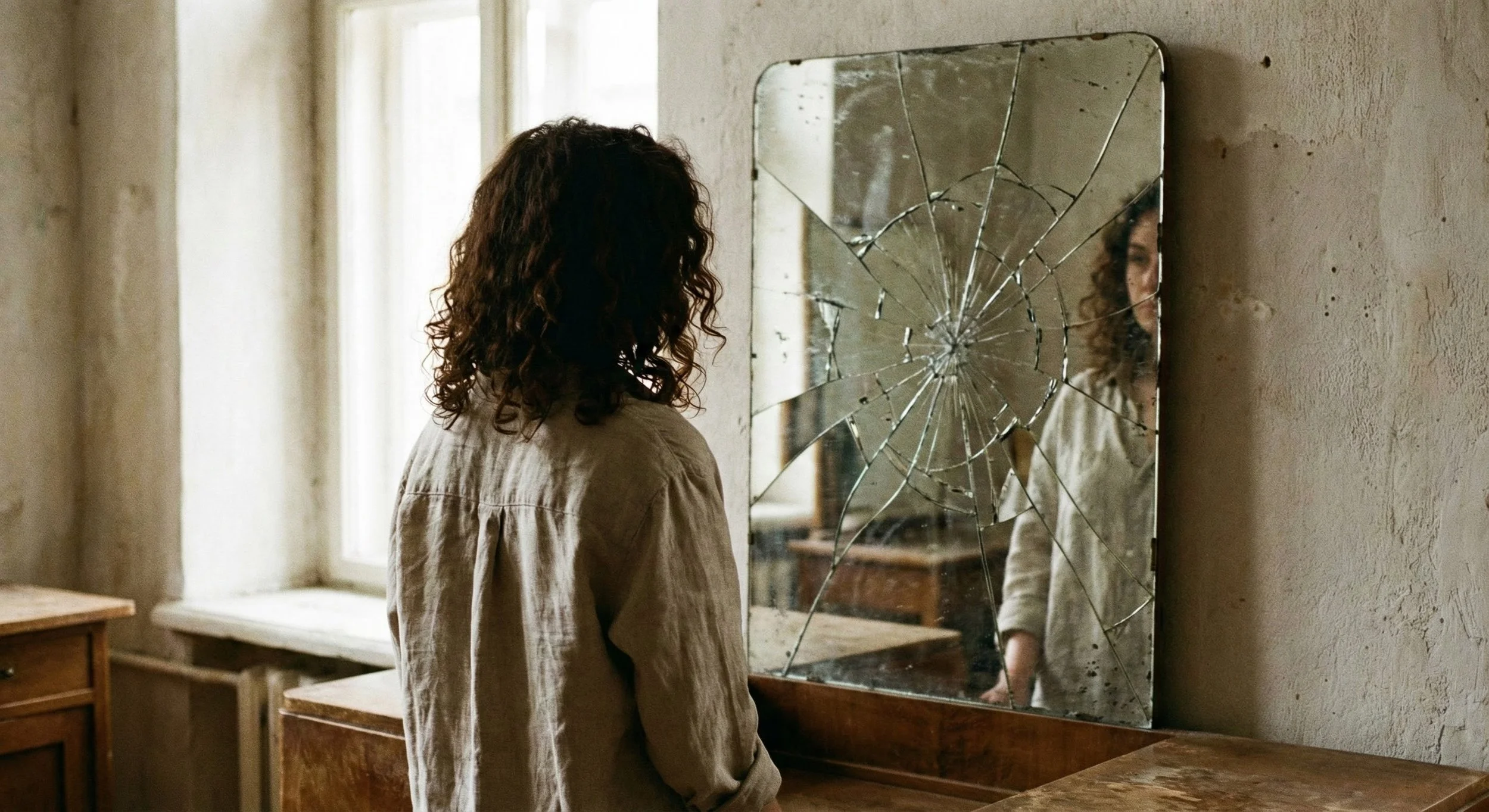
Why We Can’t Stop Watching Mothers on the Brink
There is a quiet, heavy frequency humming through our screens lately, and it sounds a lot like a nervous breakdown muffled by a laundry pile.
If you’ve scrolled through a trailer list or walked past a cinema poster in the last few months, you’ve felt the vibration. We are currently mid-wipeout in a tidal wave of stories about mothers who are, quite simply, struggling to stay upright. From the visceral, hallucinogenic postpartum haze of Die My Love to the feverish, "I-might-actually-snap" anxiety of If I Had Legs I’d Kick You, the "Perfect Mother" archetype has finally been evicted. In her place, we’re getting something far more honest, far more raw, and—let’s be real—far more interesting.

The Unseen Weight of Trying to Be Good: “Scrupulosity” in Modern Motherhood
But if we look closer, there is often something else living beneath the research. A quiet, terrifying whisper that says: If I just check enough boxes, if I just worry enough, I can outrun the risk of being bad. This is not just anxiety. For many mothers, this is the landscape of Scrupulosity.

Unmasking the Many Faces of Postpartum: Why It’s Not Just "The Weeps"
We are sold an image of new motherhood that is soft and pastel. But sometimes reality looks less like a diaper commercial and more like a survival experiment. If you are waiting for a cinematic moment of weeping to validate your struggle, you might miss the signs that show up as sudden rage or terrifying numbness. You can love your child fiercely and still feel like you have completely lost yourself. You do not have to white-knuckle your way through this season alone.

5 Common Signs of C-PTSD in Mothers: Beyond "Mom Guilt"
Parenting is inherently exhausting. It is full of noise, demands, and sleepless nights. But for some mothers, the exhaustion feels heavier. It feels historic. If you find that the chaos of raising children triggers a reaction that feels disproportionate to the moment, you might not just be dealing with 'mom burnout.'

A New Year Letter: Everything Makes Sense
"If there is one thing I want you to tattoo on your heart this year, it’s this: All behavior makes sense given its context. When your child has a meltdown over the 'wrong' blue bowl? It makes sense in the context of a nervous system that is still under construction. When you snap because the house is loud and the term 'overstimulated' feels like the understatement of the century? That makes sense, too. You aren't 'losing it'; you are a human responding to an environment."

When Loving Them Feels Like Losing You: The Trap of People-Pleasing Our Children
We talk a lot about people-pleasing our bosses or “those” relatives (you know exactly who I’m talking about). We rarely name the specific, tender exhaustion of people-pleasing our own children. It’s a sneaky trap because it looks like 'good parenting.' It looks like devotion. But if the cost is your mental health, your marriage, or your basic ability to pee alone, it isn’t just parenting.

“I Am Afraid She Is Like Me:” Befriending the "Too Much"
I want to shield her from her sensitivity so that she doesn’t get wounded. I know wounded. I am afraid for her. I am afraid of potentially witnessing her woundedness and being rendered helpless in my ability to help her.
I fear that Mom, the elusive all-knowing being she currently sees me as, will fail her. I fear I will abandon her in her big feelings, the way I felt I was abandoned as a child. I worry she will learn to fear herself the way I have in the past.


The Mirror, My Daughter, and the Cycle I Didn’t Mean to Share
A simple glance in the mirror becomes a moment of deep self judgment. And as my face scrunches in disgust, I see my daughter's eyes watching me. The feeling instantly turns to a wave of shame. This is how generational patterns work. We are caught in a cycle we promised to break, suddenly afraid that we are passing on the very story we never wanted to tell. This reflection is about that moment, and how we can find a path to repair, even when we feel we have failed.

The Detective in Your Mind: A Clinical Look at OCD in Motherhood
Your internal detective is not a villain. She is a protector working in overdrive. The OCD is an alarm system, but the wiring is faulty. It rings loudly about dangers that are not actually present. The compulsions are her desperate attempts to silence the alarm and secure a guarantee of safety that can never truly exist. The fear you feel is a measure of your love, turned up to an unbearable volume.

